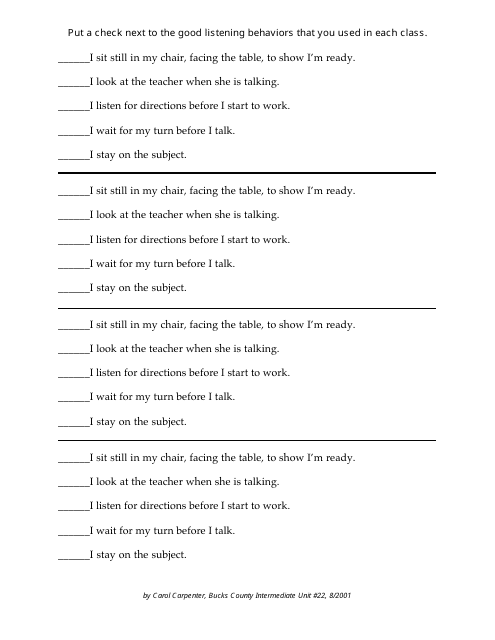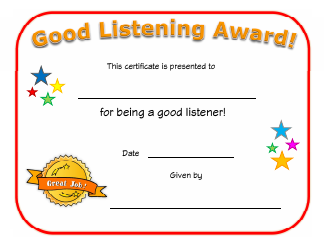Good Listening Behaviors Self Check Template - Carol Carpenter
The "Good Listening Behaviors Self Check Template - Carol Carpenter" is a tool or guide designed to help individuals assess and improve their listening skills and behaviors. It provides a checklist or template that allows individuals to evaluate how well they listen and identify areas for improvement.
FAQ
Q: What are good listening behaviors?
A: Good listening behaviors include giving full attention, maintaining eye contact, nodding to show understanding, and avoiding interrupting.
Q: Why is it important to practice good listening behaviors?
A: Practicing good listening behaviors improves communication, builds trust, and shows respect for the speaker.
Q: What does it mean to give full attention when listening?
A: Giving full attention means focusing on the speaker, avoiding distractions, and actively engaging in the conversation.
Q: How can maintaining eye contact improve listening?
A: Maintaining eye contact shows the speaker that you are paying attention and helps you pick up on nonverbal cues.
Q: Why is it important to avoid interrupting when listening?
A: Interrupting can disrupt the flow of the conversation and make the speaker feel unheard or disrespected.
Q: What are some other good listening behaviors?
A: Other good listening behaviors include asking clarifying questions, summarizing what you've heard, and showing empathy and understanding.


